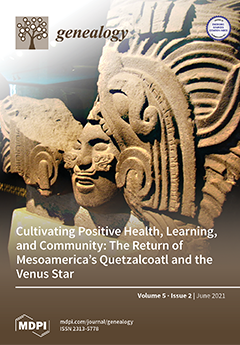In this Critical Yoga Studies (CYS) examination, I introduce terms, “racial tourism,” and “racial mobility,” and a method, “justice storytelling.” These terms and this method are poised to be used strategically in the quest to grapple with race and racial fraud in the
[...] Read more.
In this Critical Yoga Studies (CYS) examination, I introduce terms, “racial tourism,” and “racial mobility,” and a method, “justice storytelling.” These terms and this method are poised to be used strategically in the quest to grapple with race and racial fraud in the academy. Racial fraud in the academy is exemplified by, but not limited to, infamous scholars such as Rachel Dolezal, Jessica Krug, Andrea Smith, Elizabeth Warren, and BethAnn McLaughlin. The terms “racial mobility” and “racial tourism,” intentionally create space in which to
notice and
assess racial fraud. In establishing CYS, I aim to provide epistemic space in which pause the cycle of
harm (ie. instigated by exposure to racial fraud in the academy) and
reaction (outrage, condemnation) and make space to notice, witness, and be (
“this is happening”). The terms, method, and guiding questions offered in this study create epistemic space to
notice race, to continue to
be despite racism, and
assess the ongoing project of racial categorizations in order to quell disorientation that results from harm. I add these terms to the basket of more highly circulating terms (such as “cultural appropriation,” and “identity fraud”) used to describe and respond to: (1) the specific phenomenon of white scholars engaging in racial fraud, and (2) the broader experience of living with and within inseparable systems of race, racial categorizations, and racism in the ivory tower. CYS is grounded in legal scholarship and critical race theory. I build on “legal storytelling” in an experimental, poetic form I call, “justice storytelling,” which enables healing. I find the terms I introduce, “racial tourism” and “racial mobility,” reveal a state of movement at the essence of the racial takings and accumulation of racial value enacted by white scholars committed to racial appropriation and fraudulently coding as Black, brown, and Indigenous in the academy.
Full article





